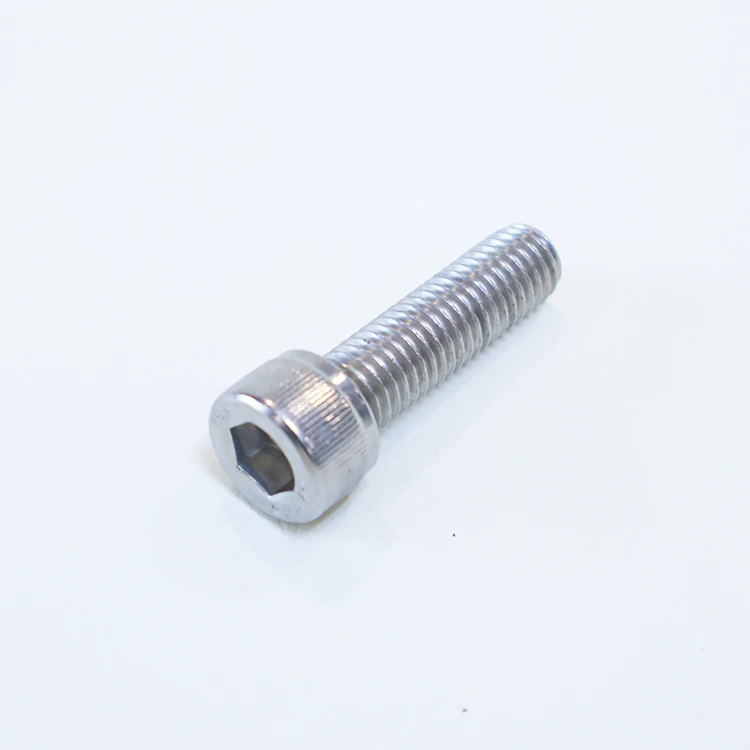Introduction
Stainless steel hexagon socket bolts, also known as hex socket cap screws, are vital components in various engineering and construction applications. Renowned for their robustness, corrosion resistance, and ease of installation, these bolts offer numerous advantages across different industries. This article examines the characteristics, applications, and benefits of stainless steel hexagon socket bolts.
Key Characteristics
- Material Composition:
- Stainless Steel: Typically made from alloys such as 304, 316, or 18-8 stainless steel, these bolts boast excellent corrosion resistance and mechanical strength.
- Corrosion Resistance:
- Oxidation and Rust Prevention: Stainless steel bolts resist oxidation and rust, making them ideal for environments exposed to moisture and chemicals.
- Mechanical Strength:
- High Tensile Strength: Stainless steel bolts offer superior tensile strength, ensuring they can withstand heavy loads and mechanical stress.
- Thermal Stability:
- High Temperature Tolerance: These bolts maintain their integrity and performance at elevated temperatures, making them suitable for high-temperature applications.
- Design:
- Hexagon Socket Head: The hexagon socket design allows for easy and secure installation using a hex key or Allen wrench, providing a tight fit and reducing the risk of slippage during assembly.

Applications
Stainless steel hexagon socket bolts are employed in a wide array of applications due to their durability and resistance to corrosion. Key application areas include:
- Construction:
- Structural Components: These bolts are used in constructing buildings, bridges, and other structures where strength and reliability are crucial.
- Facade Systems: They are ideal for securing facade systems and external architectural elements due to their corrosion resistance.
- Automotive:
- Engine and Transmission Systems: Stainless steel bolts are used in engines and transmissions where high strength and resistance to heat and corrosion are required.
- Body and Chassis: They are also employed in the body and chassis of vehicles to ensure structural integrity and durability.
- Marine:
- Shipbuilding: The marine industry uses stainless steel bolts for constructing and maintaining ships and submarines, thanks to their resistance to saltwater corrosion.
- Marine Equipment: These bolts are used in various marine equipment, such as pumps, valves, and fixtures, exposed to harsh sea environments.
- Aerospace:
- Aircraft Assembly: Stainless steel bolts are used in aircraft assembly due to their high strength-to-weight ratio and resistance to extreme temperatures and corrosion.
- Spacecraft Components: Their reliability and durability make them suitable for critical spacecraft components.
- Industrial Machinery:
- Manufacturing Equipment: Stainless steel bolts are employed in manufacturing equipment that operates in harsh industrial environments.
- Processing Plants: They are also used in chemical, food, and pharmaceutical processing plants where resistance to corrosive substances is essential.
Benefits
- Durability:
- Stainless steel hexagon socket bolts offer long-lasting performance due to their high tensile strength and resistance to wear and corrosion.
- Corrosion Resistance:
- Their ability to resist rust and oxidation makes them ideal for use in environments exposed to moisture, chemicals, and saltwater.
- Versatility:
- These bolts are suitable for a wide range of applications across different industries, offering flexibility and reliability.
- Aesthetic Appeal:
- Stainless steel bolts provide a clean, polished look, making them suitable for applications where appearance matters, such as architectural projects.
- Cost-Effectiveness:
- Although the initial cost of stainless steel bolts may be higher, their durability and low maintenance needs result in lower overall costs over time.
- Safety:
- The reliability of stainless steel bolts in extreme conditions enhances safety in critical applications, reducing the risk of failure and accidents.
Conclusion
Stainless steel hexagon socket bolts are essential components in various industries, offering unmatched durability, corrosion resistance, and mechanical strength. Their application in construction, automotive, marine, aerospace, and industrial machinery highlights their versatility and reliability. By choosing stainless steel hexagon socket bolts, industries can ensure enhanced performance, safety, and cost-effectiveness in their operations.